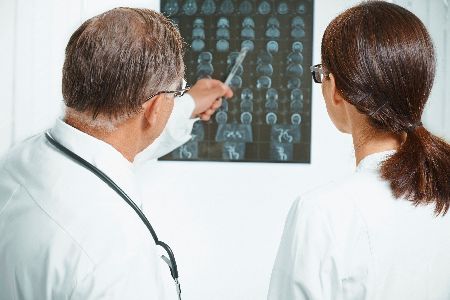A new training facility has opened at Daresbury Laboratory, aimed at giving University of Liverpool trainee medical physicists hands-on experience of medical scanners.
The new Medical Training and Research Laboratory (MTRL) will house a SPECT/CT scanner that will allow students to receive a first-class training experience away from the daily pressures of the hospital environment, where there is often a long wait for access to such in-demand scanning equipment.
It is a joint initiative between the University of Liverpool, the Royal Liverpool University Hospital and the Science and Technology Facilities Council (STFC).
Dr Melvyn Carroll, from the University’s Department of Physics, said: “This is a fantastic opportunity for our students to receive hands-on training during their MSc. The laboratory provides top class facilities and expertise, allowing our students to receive the training they need to fulfil their careers.”
SPECT/CT scanners produce a 3D map of a patient’s body and is therefore a key element in patient diagnosis, providing medical physicists with a huge advantage. The MTRL will remove the constraints of training in a busy hospital. It will also benefit scientists, by allowing researchers to explore potential ways to improve medical imaging scanners with new technologies.
Shorter timescales
STFC’s, Ian Lazarus, who leads the MTRL project team, said: “Scanners are used to show doctors exactly where to find tumours, how efficiently our hearts are working or what is happening in our brains – for instance, whether a patient’s symptoms are caused by Parkinson’s disease, or another condition with similar symptoms.
“The MTRL is dedicated to teaching and research; students who train here will have allocated blocks of time to use the SPECT/CT, so will gain knowledge and skills in a much shorter timescale.”
In the future the MTRL hopes to welcome students from more institutions, as well as researchers wishing to improve medical imaging for the benefit of NHS patients.
The laboratory that houses the scanner has been completely refurbished and provided with equipment with funding from STFC.
The vital scanning equipment was bought and installed by the University of Liverpool.
